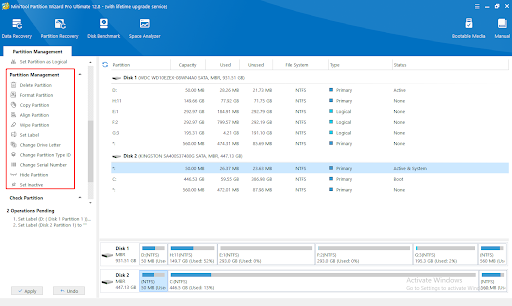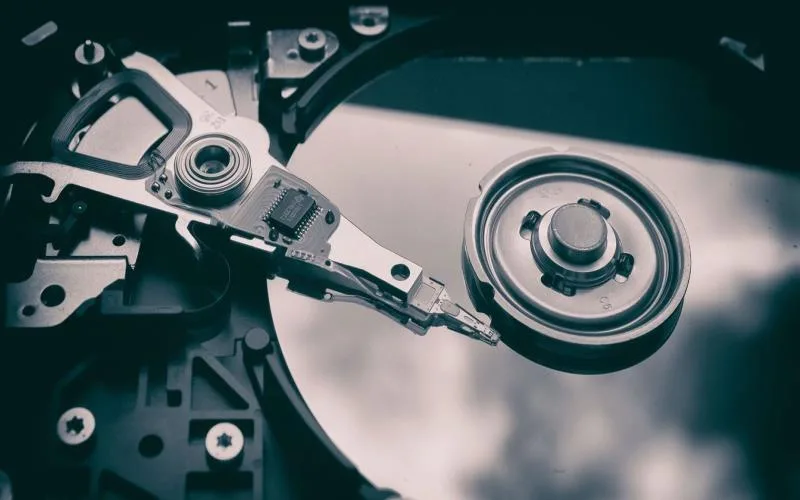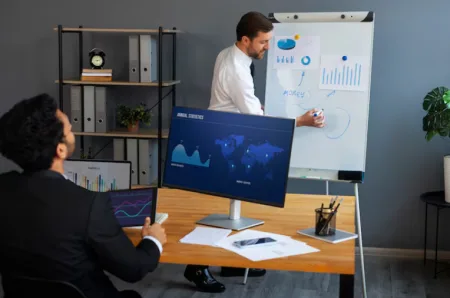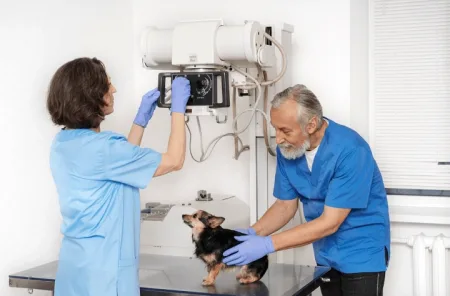Partitioning a drive allows you to further divide up data into separate compartments; for instance, you could set aside one partition for system files and another for personal files. Should Windows become corrupt or require reformatting, your personal partition’s data should remain safe from corruption or loss.
Easy to use

You may divide various data kinds of operating systems on your drive by partitioning it. For instance, you may have two partitions: one for your personal data and one for your operating system and apps. Finding and managing your data is simplified by this division. The entire disk can be backed up, but with several partitions, you can back up individual partitions. When producing backups, MiniTool Partition Wizard can speed up the process and free up storage space, making the process more practical and effective. It’s possible for other partitions to continue operating normally if one partition is corrupt or loses data. With the remainder of your files unaffected, this can make it simpler to recover data from a damaged disk.
Flexibility

Partitioning is necessary if you want to run two operating systems simultaneously on your computer. It is easier to administer a partition manager and update each operating system when they are separated on their own partition. By keeping frequently used data near together, partitioning can aid in improving drive performance. One way to ensure that gaming-related files are saved on a separate disk from your operating system is to have one partition for your operating system and another for your games. This might potentially improve loading speeds. You may separate sensitive data from other files on your system by partitioning it. Your private information is further secured by the option to encrypt particular partitions. Working with smaller partitions can be easier and faster than handling a single huge drive when performing maintenance procedures like defragmentation or disk cleansing.
Customization options:

You can designate particular partitions for particular users or tasks if your system supports multiple users or running apps. One user or program using up all the disk space can be avoided with the use of this division. Partitioning can simplify the process of switching to a bigger drive or transferring your files to a new machine. Instead of copying the whole disk, you may migrate or clone a single partition. You may adjust the storage configuration to suit your needs by using partitioning. For certain use situations, you can design file systems and partitions with varied sizes.
Performance enhancement:
Reduced file fragmentation inside a partition is a benefit of partitioning. Because the disk head doesn’t have to travel around as much to access data when files are placed in contiguous blocks on a partition, reading and writing processes can be sped up. To reduce the need for manual partitioning for this reason, current file systems and storage devices frequently manage fragmentation effectively. You can separate particular types of data or applications by partitioning data into several groups. One partition’s performance shouldn’t be able to impact how well other partitions perform thanks to this isolation. If your operating system and data storage are on different partitions, for instance, problems with data-intensive operations won’t have a negative influence on the OS’s performance as much.
Time saving options:
Maintenance procedures like defragmentation, disk scanning, and file system inspections may go more quickly on smaller partitions. The free partition software is handy to process less data, which takes less time because of faster execution. Performance may be enhanced for particular applications by setting up a separate partition just for them, such video editing or gaming. You may, for instance, guarantee that your games have more constant access to disk resources by putting them on a different partition, which may shorten load times and secure your essential data. Cache and temporary files can be stored on a secondary partition, which some users do. This can help keep the primary data partition clean and may even enhance speed. Nevertheless, contemporary operating systems and programs frequently handle temporary files effectively on their own. The effect of partitioning on speed is often minimal, especially with contemporary file systems and storage technologies, and this is important to keep in mind.



